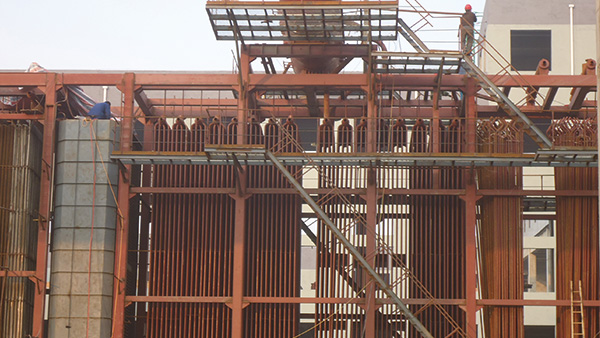Guide: The boiler is a pressure vessel and also an energy conversion device. It produces heat energy after burning fuel, and then the heat energy is transferred to the water in the boiler to heat the water temperature and finally reach a certain degree of steam or hot water. work process
The boiler is a pressure vessel and also an energy conversion device. It produces heat energy after burning fuel, and then the heat energy is transferred to the water in the boiler to heat the water temperature and finally reach a certain degree of steam or hot water. work process.

Boilers can be divided into steam boilers, hot water boilers and heat-conducting oil boilers according to the use of product media. Steam boilers are boiler products that produce steam. They are mostly used in industry. Hot water boilers are mostly used for heating and bathing in winter. Life-related.
Classification of hot water boilers:
Hot water boilers can be subdivided according to different categories. According to the body type, they can be divided into horizontal hot water boilers and vertical hot water boilers; according to pressure, they can be divided into pressure hot water boilers and atmospheric hot water boilers; according to nitrogen Oxide content can be divided into low-nitrogen hot water boilers and ordinary hot water boilers; according to the fuel, it can be divided into oil-fired gas hot water boilers, biomass hot water boilers, electric heating hot water boilers and coal-fired hot water boilers; according to the rated heat Power can be divided into small hot water boiler, medium hot water boiler and large hot water boiler.
The advantages of horizontal biomass hot water boiler:
1. Low operating cost
Horizontal biomass hot water boiler refers to a hot water boiler product that is horizontal and burns biomass pellets as fuel. It has a lower operating cost and is a boiler with a lower operating cost after coal-fired boilers.
2. High thermal efficiency
Compared with coal-fired boilers, this product has higher thermal efficiency, and its thermal efficiency is about 85%. The improvement of thermal efficiency can reduce fuel consumption, shorten working hours and reduce operating costs.
3, less pollution
As the traditional coal-fired boilers were eliminated and banned, biomass boilers came into being. Its pollution degree is relatively low. It belongs to energy-saving and environmentally friendly boiler products. The fuel uses renewable resources and the degree of environmental pollution is low.
4, safe and reliable
Because it is a hot water boiler product, it will not have boiler explosion risk accidents (except for pressurized hot water boilers), it has no working pressure, the working environment is connected to the atmosphere, and the safety factor is high.
Disadvantages of horizontal biomass hot water boiler:
1. The operation is not very smart
Horizontal biomass hot water boilers can be divided into movable grate boilers and chain boilers according to the chain. The chain boiler is automatically loaded. Its operation is relatively simple, but for electric boilers and gas oil boilers, its degree of intelligence There is nothing more.
2. Not available in some areas
In some areas, horizontal biomass hot water boilers cannot be used. This is because some areas have stricter pollution conditions and consider that biomass boilers are not environmentally friendly products.




























